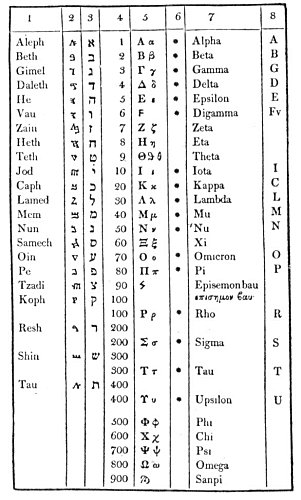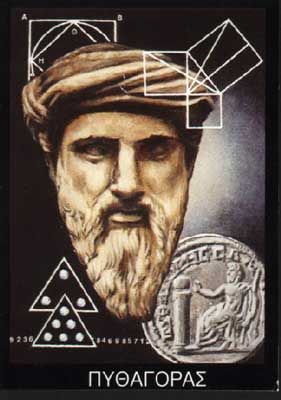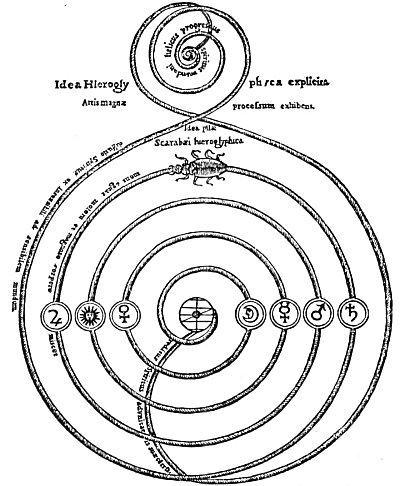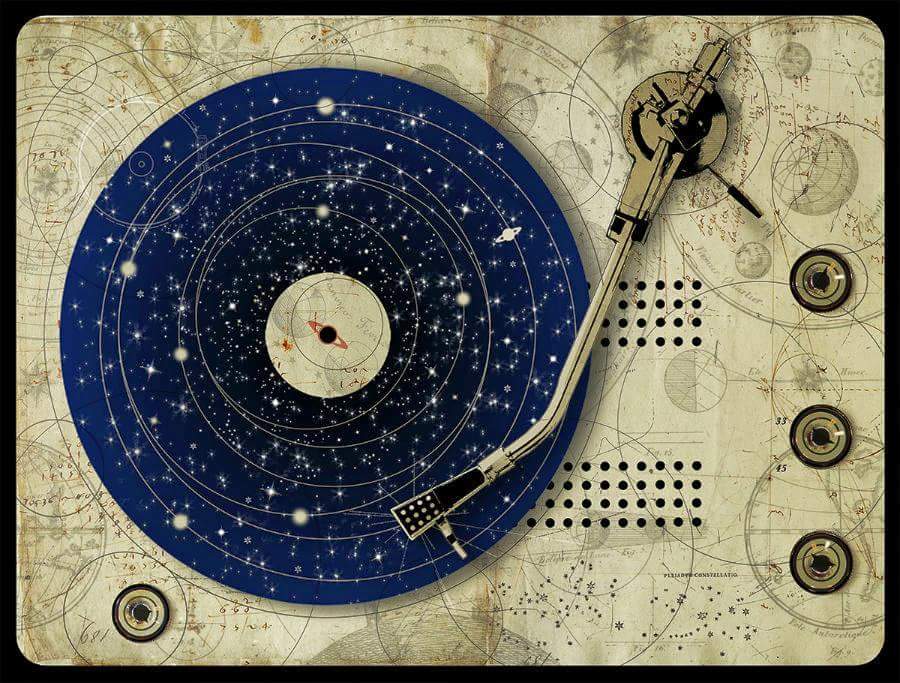p. 83
writes: “There’s not the smallest orb which thou behold’st but in his motion like an angel sings.” So little remains, however, of the Pythagorean system of celestial music that it is only possible to approximate his actual theory.
Pythagoras conceived the universe to be an immense monochord, with its single string connected at its upper end to absolute spirit and at its lower end to absolute matter–in other words, a cord stretched between heaven and earth. Counting inward from the circumference of the heavens, Pythagoras, according to some authorities, divided the universe into nine parts; according to others, into twelve parts. The twelvefold system was as follows: The first division was called the empyrean, or the sphere of the fixed stars, and was the dwelling place of the immortals. The second to twelfth divisions were (in order) the spheres of Saturn, Jupiter, Mars, the sun, Venus, Mercury, and the moon, and fire, air, water, and earth. This arrangement of the seven planets (the sun and moon being regarded as planets in the old astronomy) is identical with the candlestick symbolism of the Jews–the sun in the center as the main stem with three planets on either side of it.
The names given by the Pythagoreans to the various notes of the diatonic scale were, according to Macrobius, derived from an estimation of the velocity and magnitude of the planetary bodies. Each of these gigantic spheres as it rushed endlessly through space was believed to sound a certain tone caused by its continuous displacement of the æthereal diffusion. As these tones were a manifestation of divine order and motion, it must necessarily follow that they partook of the harmony of their own source. “The assertion that the planets in their revolutions round the earth uttered certain sounds differing according to their respective ‘magnitude, celerity and local distance,’ was commonly made by the Greeks. Thus Saturn, the farthest planet, was said to give the gravest note, while the Moon, which is the nearest, gave the sharpest. ‘These sounds of the seven planets, and the sphere of the fixed stars, together with that above us [Antichthon], are the nine Muses, and their joint symphony is called Mnemosyne.'” (See The Canon.)This quotation contains an obscure reference to the ninefold division of the universe previously mentioned.
The Greek initiates also recognized a fundamental relationship between the individual heavens or spheres of the seven planets, and the seven sacred vowels. The first heaven uttered the sound of the sacred vowel Α (Alpha); the second heaven, the sacred vowel Ε (Epsilon); the third, Η (Eta); the fourth, Ι (Iota); the fifth, Ο (Omicron); the sixth, Υ (Upsilon); and the seventh heaven, the sacred vowel Ω (Omega). When these seven heavens sing together they produce a perfect harmony which ascends as an everlasting praise to the throne of the Creator. (See Irenæus’ Against Heresies.) Although not so stated, it is probable that the planetary heavens are to be considered as ascending in the Pythagorean order, beginning with the sphere of the moon, which would be the first heaven.
Many early instruments had seven Strings, and it is generally conceded that Pythagoras was the one who added the eighth string to the lyre of Terpander. The seven strings were always related both to their correspondences in the human body and to the planets. The names of God were also conceived to be formed from combinations of the seven planetary harmonies. The Egyptians confined their sacred songs to the seven primary sounds, forbidding any others to be uttered in their temples. One of their hymns contained the following invocation: “The seven sounding tones praise Thee, the Great God, the ceaseless working Father of the whole universe.” In another the Deity describes Himself thus: “I am the great indestructible lyre of the whole world, attuning the songs of the heavens. (See Nauman’s History of Music.)
The Pythagoreans believed that everything which existed had a voice and that all creatures were eternally singing the praise of the Creator. Man fails to hear these divine melodies because his soul is enmeshed in the illusion of material existence. When he liberates himself from the bondage of the lower world with its sense limitations, the music of the spheres will again be audible as it was in the Golden Age. Harmony recognizes harmony, and when the human soul regains its true estate it will not only hear the celestial choir but also join with it in an everlasting anthem of praise to that Eternal Good controlling the infinite number of parts and conditions of Being.

Moe is the founder of GnosticWarrior.com. He is a father, husband, author, martial arts black belt, and an expert in Gnosticism, the occult, and esotericism.








